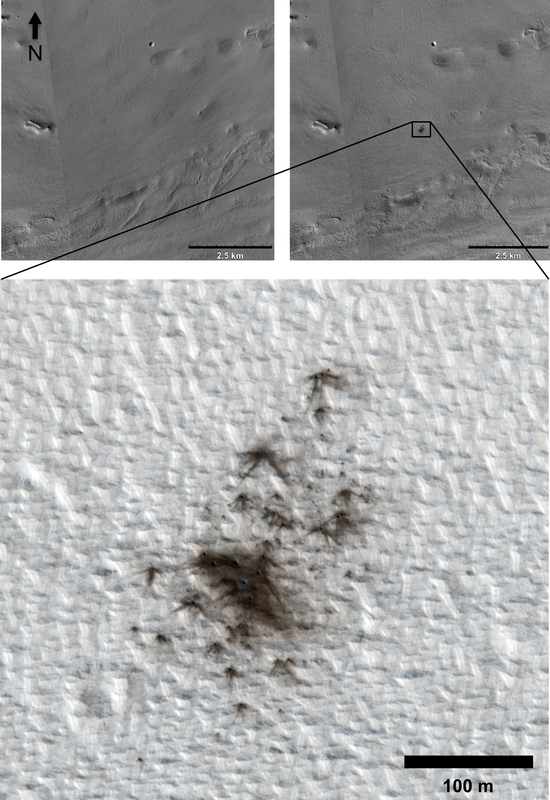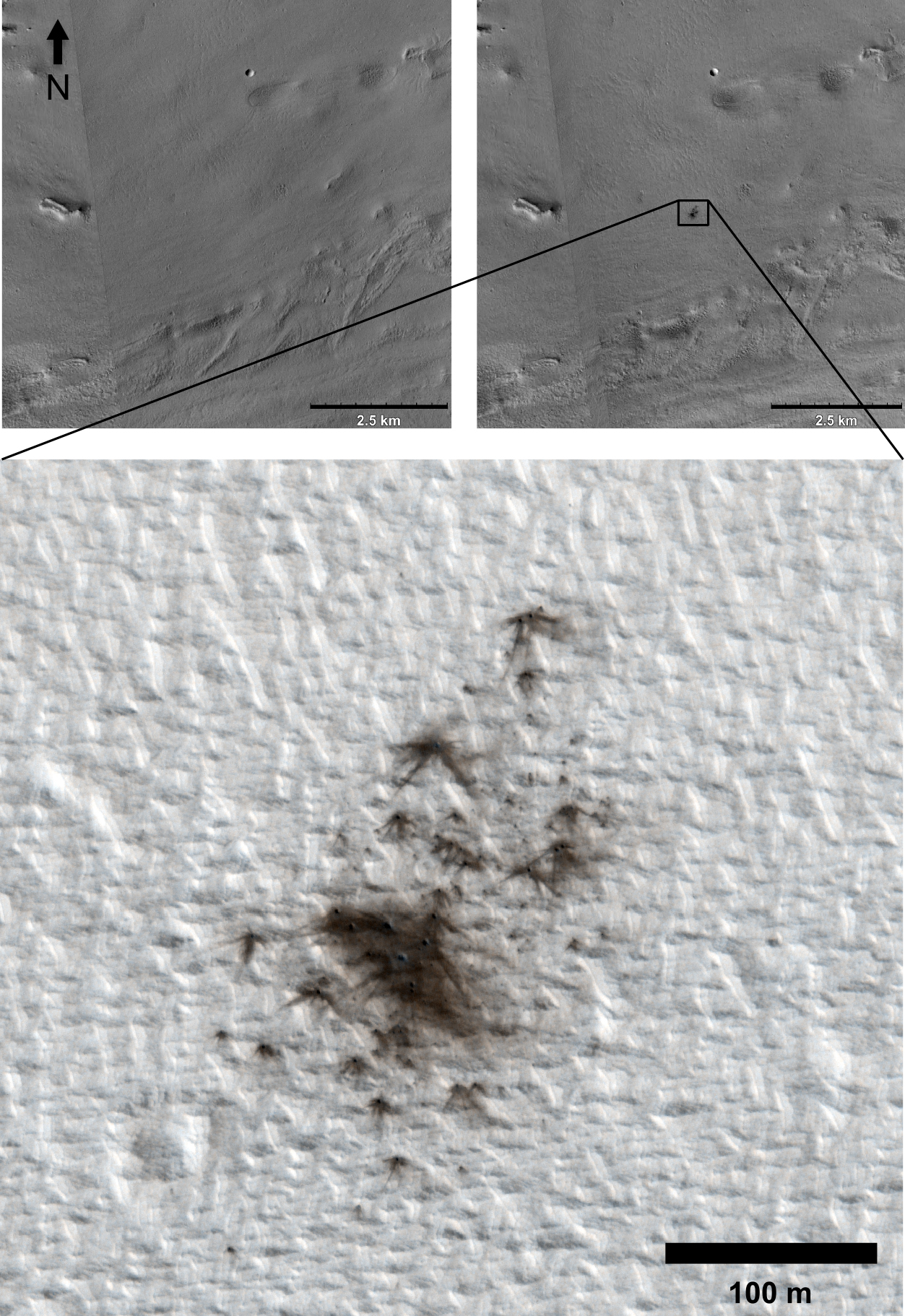Fresh Cluster of Impact Craters on Mars

| Credit | NASA/JPL-Caltech/MSSS/Univ. of Arizona |
|---|---|
| Language |
|
This set of images from cameras on NASA's Mars Reconnaissance Orbiter documents the appearance of a new cluster of impact craters on Mars. The orbiter has imaged at least 248 fresh craters, or crater clusters, on Mars.
The two upper images are from the orbiter's Context Camera (CTX). The upper-right image, taken on May 24, 2011, shows a dark patch at the center that is not present in the upper-left image, taken Aug. 15, 2010. The scale bar on each of these two images is 2.5 kilometers (1.6 miles). The location on Mars is 4.472 degrees north latitude, 246.893 degrees east longitude. Due to the dust blanketing the ground in this region, impacts produce a dark-looking blast zone where the dust is disturbed.
Researchers investigated the new dark spot with the orbiter's High Resolution Imaging Science Experiment (HiRISE) camera, obtaining the lower image showing a cluster of small, fresh craters. The scale bar on this image is 100 meters (328 feet).
This set of images is from in a paper in the journal Icarus in which researchers report an estimated crater-forming rate of about 200 impacts per year on Mars producing craters at least 12.8 feet (3.9 meters) in diameter. More than half of the impacts in this size range result in clusters rather than single craters. Small asteroids and fragments of comets that would be too small to get through Earth's atmosphere can excavate craters on Mars because Mars has much less atmosphere than Earth.
Malin Space Science Systems, San Diego, built and operates CTX. The University of Arizona Lunar and Planetary Laboratory operates HiRISE, which was built by Ball Aerospace & Technologies Corp., Boulder, Colo. NASA's Jet Propulsion Laboratory, a division of the California Institute of Technology in Pasadena, manages the Mars Reconnaissance Orbiter for NASA's Science Mission Directorate in Washington. Lockheed Martin Space Systems, Denver, built the orbiter.

